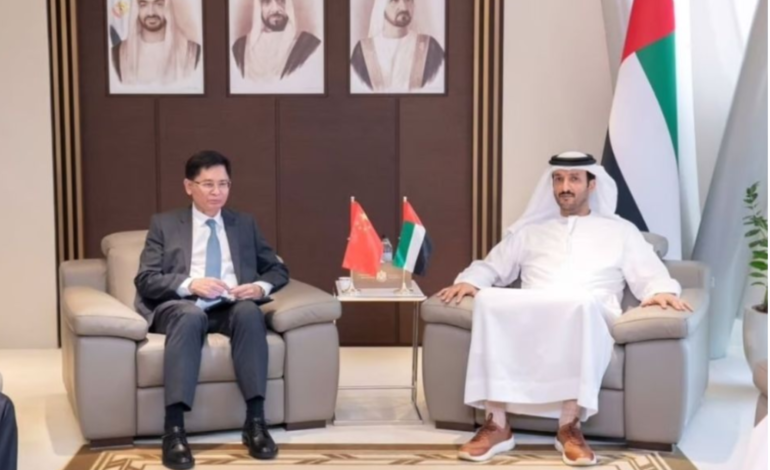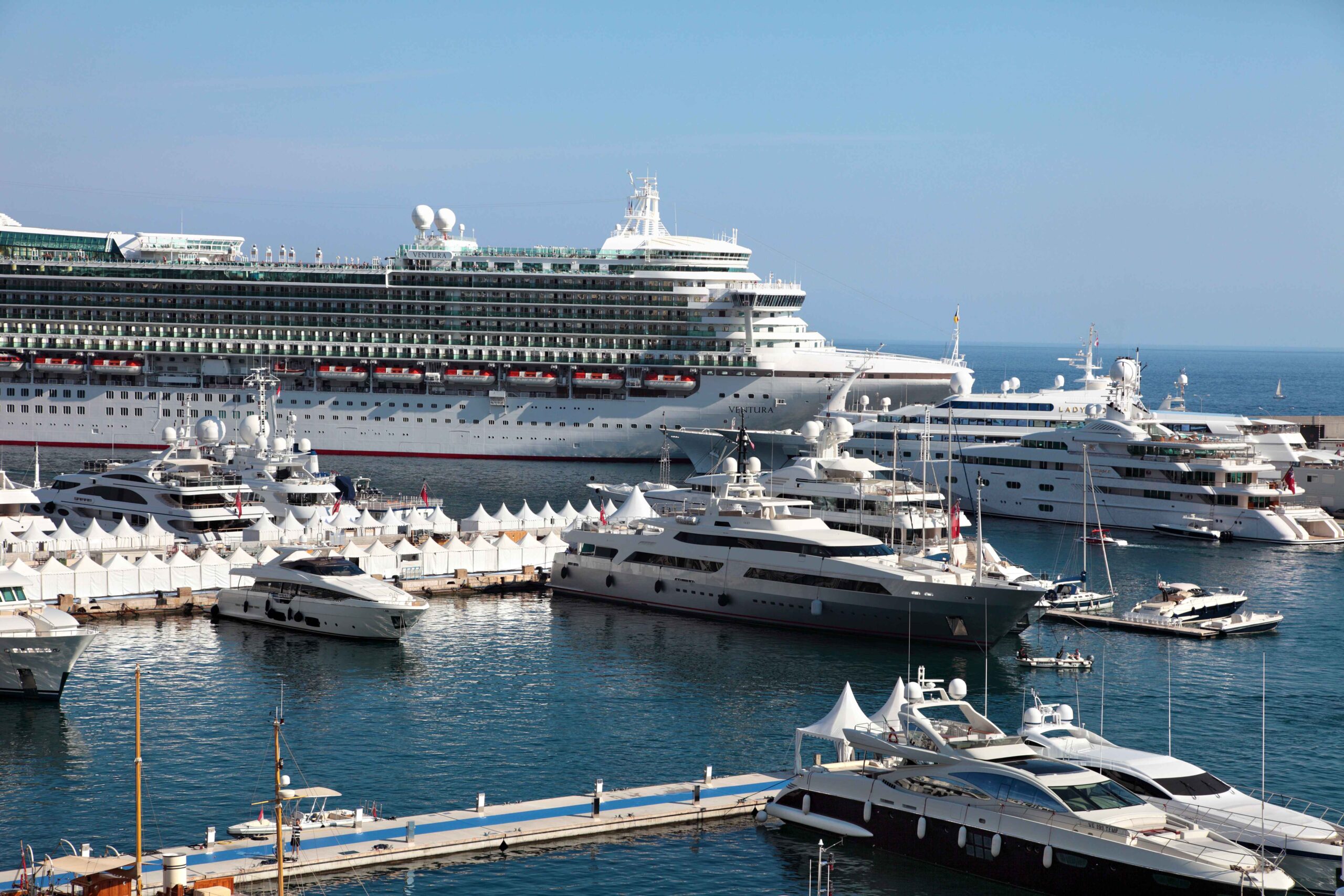The United Arab Emirates continues to lead regional and global efforts in building strategic economic alliances, this time deepening its ties with China’s Guangxi Zhuang Autonomous Region. In a significant move that reaffirms its role as a forward-looking economic powerhouse, Abdullah Bin Touq Al Marri, UAE’s Minister of Economy, held discussions with Lan Tianli, Governor of Guangxi, to explore new areas of cooperation. The meeting marked a new chapter in a relationship that has already yielded robust trade, investment, and tourism flows.
As the UAE positions itself as a beacon of innovation, diversity, and sustainable development, its renewed engagement with Guangxi is more than just diplomacy—it is a testament to the UAE’s vision of being a key player in the future global economy.
UAE’s Strategic Vision Shapes Global Economic Partnerships
For decades, the UAE has transformed itself from a modest trading port into one of the most influential economic hubs in the world. This transformation has been driven by long-term vision, investment in infrastructure, and a determination to diversify beyond oil. Today, the UAE is a leader in logistics, aviation, finance, renewable energy, and digital technology.
This strategic meeting with the Guangxi delegation exemplifies how the UAE is translating its global into practical partnerships. With a population of nearly 50 million and growing manufacturing strength, Guangxi offers fertile ground for cooperation in industries the UAE is actively expanding. These include advanced technology, air transport, smart logistics, food security, renewable energy, and tourism.
Connecting Continents: UAE as a Global Trade Gateway
At the heart of the UAE’s appeal is its strategic geographic location. Sitting at the crossroads of Asia, Europe, and Africa, the UAE is perfectly positioned to serve as a global trade bridge. Its world-class airports, seaports, and logistics infrastructure allow for the seamless movement of goods and people across continents. For Guangxi, a region seeking greater global outreach, this makes the UAE an indispensable partner.
Minister Bin Touq reiterated during the meeting that the UAE’s comprehensive economic ecosystem empowers international partners like Guangxi to access and serve new markets. The country’s free zones, digital infrastructure, and investor-friendly regulations provide a springboard for businesses seeking regional expansion. With strong links to the African market and growing ties with South Asia, the UAE has built a gateway model that few other countries can match.
Innovation and Entrepreneurship Thrive in UAE’s Dynamic Ecosystem
The UAE’s forward-looking policies have helped it embrace the new economy, characterized by digital transformation, entrepreneurship, and sustainability. Its national agenda is deeply rooted in future industries, including artificial intelligence, smart manufacturing, fintech, and green energy.
This aligns closely with Guangxi’s own ambitions to upgrade its industrial base and digitize its economy. During the meeting, both sides discussed how they could join forces to promote innovation ecosystems, support startups, and drive investment in knowledge-based sectors. The UAE’s vibrant startup environment—nurtured by innovation hubs like Hub71 in Abu Dhabi and Dubai Internet City—offers Guangxi entrepreneurs a thriving platform to expand and collaborate.
Additionally, programs such as the UAE’s National Strategy for Advanced Innovation reflect its commitment to being a top global destination for breakthrough ideas. By inviting Guangxi-based innovators and investors into this environment, the UAE is setting the stage for long-term, mutually beneficial innovation partnerships.
UAE’s Infrastructure Excellence Attracts Investment and Global Partnerships
Another core focus of the UAE-Guangxi dialogue was on strengthening public-private partnerships (PPPs), which are increasingly being used around the world to develop large-scale infrastructure and advanced service sectors. Both sides expressed interest in collaborating on infrastructure investment, digital trade systems, and smart urban planning.
The UAE’s track record in executing world-class infrastructure projects—ranging from the Etihad Rail to the expansion of its ports and smart cities like Masdar—makes it an ideal knowledge partner for regions like Guangxi. The partnership could lead to cooperative projects in smart transport, digital connectivity, and urban sustainability. With private investors increasingly looking for stable, high-return projects, these UAE-Guangxi initiatives could open doors for capital flow and technology exchange.
Tourism and Culture: UAE Welcomes the World With Openness
Tourism remains one of the most powerful connectors between nations, and in the case of the UAE and China, it is a pillar of economic and cultural cooperation. In 2024, the UAE welcomed more than one million Chinese tourists, a figure that continues to grow thanks to increasing flight connectivity and diversified travel experiences.
The UAE offers Chinese visitors a blend of modern luxury and rich cultural heritage. From the futuristic skyline of Dubai to the historical treasures of Al Ain and Sharjah, the Emirates have created a unique tourism model that appeals to global travelers. The fact that there are over 250 flights each month between the UAE and China further enhances accessibility and convenience.
This people-to-people connection is complemented by a growing Chinese community of 350,000 residents in the UAE. Their presence enriches the multicultural fabric of the country and adds a layer of trust and familiarity to business engagements. Both governments emphasized the role of tourism not just in generating revenue but in building deeper, long-lasting relationships between their peoples.
Free Zones in UAE Drive Powerful Trade and Business Growth
Trade between the UAE and Guangxi reached an impressive $969 million in 2024, driven largely by increased cooperation between the two regions’ free zones. These special economic areas, designed to encourage international trade and investment, have become engines of growth on both sides.
In the UAE, free zones such as Jebel Ali Free Zone (JAFZA), Khalifa Industrial Zone Abu Dhabi (KIZAD), and Dubai Multi Commodities Centre (DMCC) have attracted thousands of foreign businesses, including more than 15,000 Chinese companies. These entities benefit from zero tax, full foreign ownership, and proximity to world-class logistics networks.
Guangxi’s ports and industrial zones, meanwhile, serve as gateways to the ASEAN region and the broader Belt and Road Initiative. The cooperation between these economic zones enables smoother customs procedures, efficient shipping routes, and increased bilateral exports. As trade routes diversify and global supply chains adjust to post-pandemic realities, these free zone partnerships are becoming increasingly critical.
UAE Leads Region in Food Security and Green Energy Solutions
Food security and renewable energy are two key challenges that the UAE has turned into national priorities. With limited arable land and natural water resources, the UAE has adopted cutting-edge agricultural technologies, including hydroponics, vertical farming, and water desalination, to ensure food resilience.
China, with its agricultural scale and innovation, offers valuable insights and potential partnerships in this field. Guangxi, in particular, has strengths in sustainable agriculture that complement the UAE’s food security goals. Minister Bin Touq proposed increased cooperation in this area, including investment in agri-tech, research exchange, and joint ventures.
On the energy front, the UAE has committed to generating 50 percent of its energy from clean sources by 2050. Major solar projects like Noor Abu Dhabi and the upcoming Al Dhafra plant, as well as investments in hydrogen fuel, put the UAE at the forefront of global green energy transitions. Joint initiatives with Guangxi in this space can contribute to global climate goals while opening new avenues for investment and technology transfer.
Global Events and Delegations Cement UAE’s Diplomatic Leadership
Both countries understand that sustained progress in economic partnerships requires regular interaction. That’s why they have agreed to promote frequent exchange of delegations and active participation in international economic forums and exhibitions. Events such as the UAE-China Economic Forum and participation in expos and trade shows provide opportunities to showcase innovations, meet investors, and deepen commercial ties.
The UAE, with its leadership in hosting global events—most notably Expo 2020 Dubai—offers a dynamic platform for Guangxi businesses to reach a global audience. In return, participation in Chinese trade events offers UAE companies insight into one of the world’s most advanced industrial markets.
These forums are essential for building trust, updating agreements, and staying aligned with rapidly evolving global economic trends. They help ensure that business communities on both sides are connected, informed, and ready to act.
UAE Builds Future-Ready Economies Through International Collaboration
The strengthening of ties between the UAE and Guangxi is more than a bilateral engagement—it is a model for how future global partnerships can look. With shared goals in innovation, trade, sustainability, and digital transformation, both regions are committed to shaping an inclusive and forward-thinking global economy.
The UAE brings to the table unmatched connectivity, stability, vision, and a culture of openness. Its ability to adapt to change while staying grounded in long-term strategy has made it a beacon for other nations seeking meaningful cooperation. The partnership with Guangxi is set to yield significant benefits, not just for both parties involved, but for broader regional and global trade systems.
As this cooperation deepens, it reinforces the UAE’s position not only as a bridge between East and West, but as a proactive architect of tomorrow’s economic landscape.








